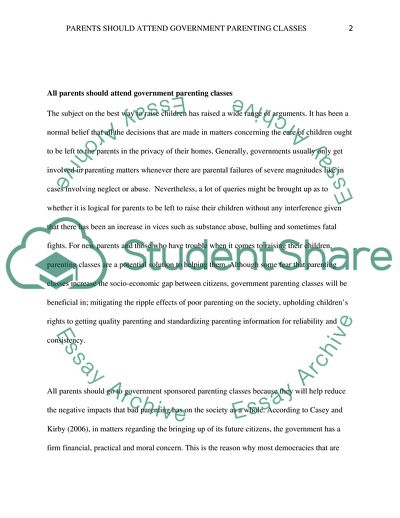Cite this document
(Why Parents Should Attend Government Parenting Classes Literature review Example | Topics and Well Written Essays - 1250 words - 1, n.d.)
Why Parents Should Attend Government Parenting Classes Literature review Example | Topics and Well Written Essays - 1250 words - 1. https://studentshare.org/family-consumer-science/1789019-all-parents-should-attend-government-parenting-classes
Why Parents Should Attend Government Parenting Classes Literature review Example | Topics and Well Written Essays - 1250 words - 1. https://studentshare.org/family-consumer-science/1789019-all-parents-should-attend-government-parenting-classes
(Why Parents Should Attend Government Parenting Classes Literature Review Example | Topics and Well Written Essays - 1250 Words - 1)
Why Parents Should Attend Government Parenting Classes Literature Review Example | Topics and Well Written Essays - 1250 Words - 1. https://studentshare.org/family-consumer-science/1789019-all-parents-should-attend-government-parenting-classes.
Why Parents Should Attend Government Parenting Classes Literature Review Example | Topics and Well Written Essays - 1250 Words - 1. https://studentshare.org/family-consumer-science/1789019-all-parents-should-attend-government-parenting-classes.
“Why Parents Should Attend Government Parenting Classes Literature Review Example | Topics and Well Written Essays - 1250 Words - 1”. https://studentshare.org/family-consumer-science/1789019-all-parents-should-attend-government-parenting-classes.


